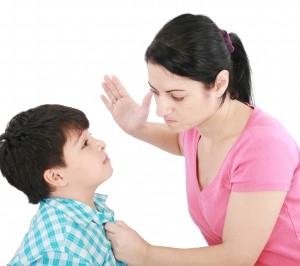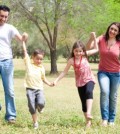Social Problems and The Family

We often hear that there is a breakdown in the American family and that our families today are facing a multitude of social problems, more social problems than in the past. Is this true? Actually, studies have found that in terms of the number of social problems faced by families the past and in the present are quite similar. Sometimes it has been considered “selective amnesia” as individuals do not remember the social problems families faced in the past. For example, housewives of the 1950s were more likely to suffer from anxiety and depression, doctors ignored signs of sexual abuse in children, and fathers had little contact with their children. It has been noted that the social problems from the past were just “swept under the rug” and today’s social problems faced by families are immediately brought to the forefront. Today there are social problems such as divorce, juvenile delinquency, the effects of working mothers, and family violence. The biggest problem noted is that families have changed so much and that our other institutions have changed so little (cultural lag) and are unable to support the family as they should (for example, work policies and school schedules are outdated). (Image courtesy of David Castillo Dominici/FreeDigitalPhotos.net)
Social Problems Faced By Families
Divorce (in a review of 92 studies on the effects of divorce it was found that children from divorced families are less likely to graduate from high school, have lower earnings, more like to be welfare dependent, more likely to marry at an early age, more likely to divorce, daughters are more likely to have a child out of wedlock, and sons are more likely to have behavioral problems; Amato and Keith)
Helping kids cope with divorce:
http://www.mayoclinic.com/health/divorce/HO00055
“Fatherless in America” (the effects of not having a father as a role model are the following: daughters – eating disorders, promiscuity, and suicide, sons – behavioral problems and juvenile delinquency
Child support (only 25% of those who are required to pay child support pay when they are supposed, another 25% pay sometimes and oftentimes not the full amount, and 50% never pay)
Explanations for Spousal Abuse
• Social stress (poverty)
• Power
• Dependency (financial and emotional dependency)
• Alcohol
• Pregnancy (a woman is more likely to experience her first partner violence situation when she is pregnant; correlation with vulnerability and jealousy)
• Isolation (victims are often isolated from their loved ones)
• Traditional marriage
Teen Dating Violence
Violence in teen relationships occurs in approximately one out of every three relationships. There are several “red flags” that oftentimes are not realized by those involved.
• Controlling vs. caring (controlling behavior is often thought of as caring at first)
• Attention vs. jealousy (keeping tabs on a person is a red flag indicating jealousy)
• Some teens have indicated that they view violence within their families and therefore have not been taught how to have a healthy relationship.
Abusive teen relationships tend to follow the same patterns as adult abusive relationships.
Effects of Observing Violence
Oftentimes children witness violence and there are a multitude of effects:
• Behavioral (aggression, cruelty to animals, acting out, delinquency)
• Emotional (anxiety, anger, depression, and low self-esteem)
• Social (inability to empathize)
• Cognitive (language lag, poor school performance)
• Physical (difficulty sleeping, bedwetting, poor motor skills)
In a study by Edelson it was found that children who witnessed their mothers being abuse were unable to empathize with others later on in life…they basically lost the ability to feel.
Cycle of Violence
Social Learning Theory: learning by observing and imitating
Albert Bandura studied how we learn by observing our aggressive models
http://www.criminology.fsu.edu/crimtheory/bandura.htm
Intergenerational Transmission Theory
It is estimated that about 30% of physically abused children become physically abusive parents. Now you may think, well, that means that 70% do not become physically abusive parents. The important comparison is that approximately 2% of those who do not experience abuse as a child become physically abusive parents.
Playing Field
Our playing field is the situation we are born into and how it affects us. It is the tools we have to work with in our lives or what we have available to us and the specific consequences this has on us. It is sometimes termed our “opportunity structure.” Our playing field can be advantaged or disadvantaged. For example, our playing field includes (and this is the short list): gender, race, ethnicity, social class, family composition, educational opportunities (and if our parents went to college or not), health (including genetic factors), if our parents have good parenting skills or not, and if we were a wanted or unwanted child. Our family plays the greatest role in the structure of our playing field and thus our opportunity structure.
The major consequence of our playing field is our self-concept, which has the biggest effect on life experiences. Our family is the institution that plays the major role in the development our self-concept.
For example, my playing field includes: male, a “wanted child”, parents divorced when I was nine results old resulting in little contact with my “father” who did not pay child support, mom worked two jobs, education and college were highly emphasized (“not an option”), and my family does not live long (many different diseases). All of these factors are going to have a multitude of consequences on me and set the stage for my life. Think about how each of these has or could have affected me and who I have become.
We say that our playing field is pure luck…it is the “luck of the draw” as to which family and environment we are born into. We are not little fetuses looking down who can choose the parents or environment we will be born into…that’s too bad, huh?
Resilient
What does resilient mean? The characteristics of resilient children are they have the capability of “rolling with the punches”, recover quickly, they focus on anything positive that is happening in their lives rather than focusing on what is wrong with their lives, and they are able to think beyond the present moment and imagine the future…pretty hard to do in some of these instances. They create an emotional distance from the situation and reach out to positive role models, or what we call a MENTOR. Most kids who are resilient have had a mentor in their life…someone to just tell them that it does not have to be this way and they will succeed in the end…this is what gives them the ability to BREAK THE CYCLE and not abuse their own kids.
An example of resilience: “A Child Called It” (David Pelzer)
‘His mother held his arm in the fame of the gas stove, required him to sleep in the cold garage, denied him food for days at a time, slammed his face into soiled baby’s diapers, forced him to vomit and then eat it, forced ammonia and dishwashing soap down his throat, threw a knife into his stomach, and repeatedly beat him until he was black and blue’
This was one of the most severe cases of child abuse ever in California. David Pelzer ‘…went on to fulfill a successful life as a husband, father, inspirational speaker, volunteer, child abuse prevention activist, and best-selling author’
Child Abuse
Types of child abuse:
• Neglect
• Physical abuse
• Sexual abuse
• Emotional abuse
Explanations of Child Abuse
• Structural factors
• Mental illness
• History of abuse
• Transitory situational factors
• Difficult child
Sibling Abuse
The most common form of family violence in our country is sibling abuse. In the past this form of family violence was ignored as the thought was that this is a “normal” part of sibling relationships. It was not until recently that we began to conduct research on sibling abuse and the findings indicate that there are long lasting effects.
Articles on sibling violence:
http://www.med.umich.edu/1libr/yourchild/sibabuse.htm
http://www.safe4all.org/essays/sibling_violence.html
Study Questions
What are the functions of the family? What changes has the family endured due to industrialization? What is the conflict perspective of the family? What is patriarchy and what are the specific effects of patriarchy on the family? What is the symbolic interactionist perspective of the family? What changes have we seen to what are considered social problems that affect the family?
About admin
Teaching Sociology is very enjoyable for me. Sociology is like a gateway to a plethora of knowledge and understanding. The subject material is directly applicable to real-world events and situations found in everyday life. The methods and concepts of sociology yield powerful insights into the social processes shaping the contemporary world. The ability to identify and understand these processes is valuable preparation for professional participation in an ever changing and complex society.Related Posts
Latest News
-
Sociology and the Pursuit of Social Justice: A Compelling Reason to Study It
Sociology is a fascinating field of study that delves into...
- Posted May 31, 2023
- 0
-
The Power of Sociology: Understanding the Importance of Social Structures
Sociology is the scientific study of society, social relationships, and...
- Posted May 31, 2023
- 0
-
FACT FINDING MISSIONS
Life is interleaved with contracts and agreements, the formal and...
- Posted August 10, 2018
- 0
-
The Many Churches of Enhancement
Throughout history religions formed around prophetic doctrines and absorbed people...
- Posted April 6, 2018
- 0
-
TAKE A SECOND TO CONSIDER THE SECOND
Remember that during the late 1700’s when the young US...
- Posted February 21, 2018
- 0
-
WHAT’S ON THE TABLE FOR IMMIGRATION
Deliberating in upcoming months will be a new proposal for...
- Posted February 12, 2018
- 0
-
Time-saving Tips from Your Instructor
Here are some helpful tips: Involve your family/friends. Let them...
- Posted October 19, 2016
- 0
-
Sociology and the Pursuit of Social Justice: A Compelling Reason to Study It
Sociology is a fascinating field of study that delves...
- May 31, 2023
- 0
-
The Power of Sociology: Understanding the Importance of Social Structures
Sociology is the scientific study of society, social relationships,...
- May 31, 2023
- 0
-
FACT FINDING MISSIONS
Life is interleaved with contracts and agreements, the formal...
- August 10, 2018
- 0
-
Successful Families
SUCCESSFUL FAMILIES Balancing Work and Family (dual-earner families) 1.Value...
- June 16, 2011
- 0
-
Sociology of Marriage
Types of “Good” Marriages: Romantic Marriage: passion and sex...
- June 16, 2011
- 0
Sociological Theory
-
Symbolic Interactionism
Symbolic interactionism focuses on how individuals communicate with one another, the basis...








